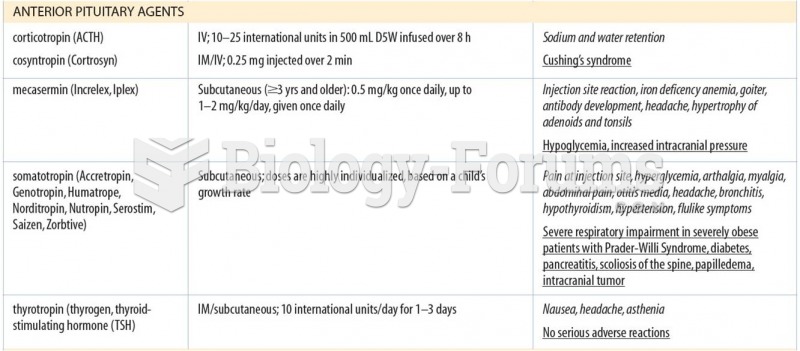This topic contains a solution. Click here to go to the answer
|
|
|
Did you know?
Sildenafil (Viagra®) has two actions that may be of consequence in patients with heart disease. It can lower the blood pressure, and it can interact with nitrates. It should never be used in patients who are taking nitrates.
Did you know?
About 600,000 particles of skin are shed every hour by each human. If you live to age 70 years, you have shed 105 pounds of dead skin.
Did you know?
In most cases, kidneys can recover from almost complete loss of function, such as in acute kidney (renal) failure.
Did you know?
The term pharmacology is derived from the Greek words pharmakon("claim, medicine, poison, or remedy") and logos ("study").
Did you know?
Between 1999 and 2012, American adults with high total cholesterol decreased from 18.3% to 12.9%
 Apply direct thumb pressure into points along the upper trapezius from base of neck to shoulder. ...
Apply direct thumb pressure into points along the upper trapezius from base of neck to shoulder. ...
 Gently stretch neck muscles. Apply stretches with head in neutral position, lateral flexion, and ...
Gently stretch neck muscles. Apply stretches with head in neutral position, lateral flexion, and ...





